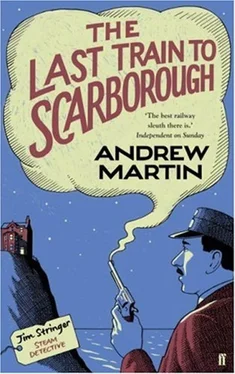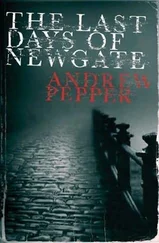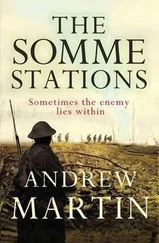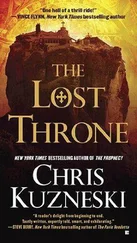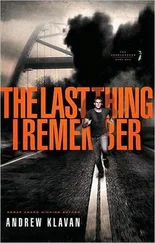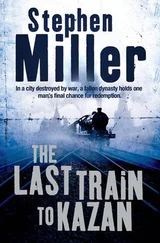Beyond the window, Retford had been replaced by flying fields. I stretched out my legs, loosened my tie, and thought about doing a spot of reading. Beside me on the seat was a copy of the previous day's Yorkshire Evening Press, which struck a happy, holiday note in some of its articles, the Easter week-end being in prospect: 'Great Rush to the Sea-side Predicted'; 'Everybody on Pleasure Bent'. All the regiments of the York garrison would be marching through the streets in aid of a recruitment drive, and there would be the showing of a film, The British Army Film, at the Victoria Hall in Goodramgate. It promised 'some very wonderful pictures of bursting shrapnel, of quick-firing guns springing out shells at the rate of thirty a minute'. Also, Constable Flower had arrested a 'drunk and incapable' on one of the far platforms of the station. He'd taken him into the cells in the police office by means of a luggage trolley, and this news had caused laughter when, later on in the day, it was announced in the police court.
Beside the Press was the latest number of the Railway
Magazine opened towards the back of the paper with the page headed 'What the Railways Are Doing' uppermost. This was the classified section of the magazine, and always carried the notices announcing meetings of the Railway Club, who were really a London lot, but whose meetings were open to anyone taking the trouble to write to the secretary for a ticket. At seven o'clock that day – the announcement was circled in my copy of the magazine – Mr A. K. Chambers would be reading a paper entitled 'The New Atlantics with Special Mention of the North Eastern Class Z', and I had the ticket for it in my pocket.
In the office, old man Wright, who distributed the post, had handed me the letter in which it came and I had made a point of satisfying his curiosity by opening the envelope in his presence and letting him see the ticket for himself. The meeting was to be held at the Railway Club's premises: 92 Victoria Street, London SW, and Wright had said, 'You've booked a day of leave for that?' Then, later, when he'd thought about it a bit more, 'Seems a long way to go just to hear about trains,' at which I'd reminded him that he was in fact in the railway police and so ought not be taking that tone.
It was quite in order to josh with Wright. His wife, Jane, would not be coming back to him as she had made plain both to Wright and to my own wife during a meeting of the Cooperative ladies. But he had developed a plan in response: firstly, he would no longer buy his groceries from any of the Co-operative stores, his wife and her new man, Terry Dawson, being employees of the Movement. This went hard with Wright because the Co-operative stores were much the cheapest, and he was a right old skinflint, but it was the principle of the thing. (The Co-operative slogan, 'The Friendly Store', now rang very hollow in his ears, he told me.) Second of all, he would leave work early twice a week to attend the dancing classes given in the room over the Big Coach public house on Nessgate. Once up to snuff with the two-step and the waltz and whatnot, he would go along to the Saturday afternoon tea dances that were held in many of the hotels of central York, and were known to attract the widows of the City.
'The best one's at the Danby Lodge on Minster Walk,' Wright told me one day in the police office. 'I'm going to try my luck there first.' 'You'll need a lot of luck,' Constable Flower had said, in an under-breath, and whether Wright heard it or not, he certainly wasn't put off. He seemed very confident about his plan, and I wondered whether the end of his marriage might not be the making of him.
Of course Wright, being so nosey, had had a field day on my delayed return from Scarborough. Lydia had been into the office twice to ask where I'd got to, the second time in tears. His fixed opinion, he told me later, was that I'd been done in. 'Of course, I didn't say that to her,' he told me, 'or not in so many words', and I dreaded to think what he had said for he was not the sort to play down any drama.
On the Thursday morning, three days after Adam Rickerby put me onto the Lambent Lady, the Chief himself had gone to Scarborough, making straight to Bright's Cliff to see what had become of me. There he'd found a bloke from the council sent to board over the window I'd smashed when I'd pitched the chair through it. That had been quick work. Someone else in the street had gone into the council offices to complain that the house, having evidently been abandoned, was now a magnet for vagrants and burglars. The Chief told me that the bloke from the council had posted a bill for the work through the letter box before leaving.
It seemed very unlikely to me that the bill would ever be paid.
The Chief had broken into Paradise in company with some of the Scarborough coppers. There were signs of people having left in a great hurry, although the gas had been turned off. It was the Chief himself who'd come upon the body of Fielding, which was just as well since he was well equipped to stand that kind of shock.
I'd returned to Bright's Cliff a few days after with the Chief, some coppers from Scarborough and Leeds, and the Scarborough coroner, a Mr Clegg. By then Theo Vaughan had turned up, having walked into the Scarborough copper shop to make a clean breast of… well, not much. He'd staggered back to the house at three in the morning on Tuesday, 17 March, and found it empty. The smashed window and the gas reek had terrified him, and – knowing that he was still under suspicion over the last bit of bad business in the house – he'd taken a few of his belongings (including, I didn't doubt, the remainder of his Continental Specialities) and fled the scene.
I'd talked to Vaughan in the coroner's court and had given him the whole tale over a cup of tea during an adjournment in the inquiry. I asked him whether he'd known that Fielding was sweet on the lady of the house.
'Not in that way, Jim,' he said, 'not in that way.'
He was every bit as familiar as he had been before, despite the fact that he now knew me for a policeman. When I told him how I'd come upon the special post cards in Fielding's bedside drawer, he said, 'He must have had 'em away from my room, Jim. I tell you… no man can resist.'
He then leant towards me, with droplets of cold tea dangling from his 'tache, and might have been on the point of again offering to sell me some at a knockdown price. I believe he was only put off by the clerk of the court coming up to me at that moment and addressing me as 'Detective Sergeant Stringer'.
Mr Clegg had praised me before his court, and the Leeds and Scarborough coppers also seemed to think I'd done a good job. It came down to this: I'd made myself the mark, and I'd cracked the mystery – and it was cracked all right, papers amounting to a confession to the killing of Blackburn having been discovered amongst Fielding's belongings. He'd known Blackburn as soon as he turned up at the house; had seen him about in Scarborough on earlier occasions with the Lady. He had observed them buying oysters on the harbour wall, later walking in Clarence Gardens. It was perhaps there that Blackburn had made her a present of the North Eastern badge that she so much admired.
In exposing Fielding I had left two dead bodies in my wake, but this seemed to be taken quite lightly by everyone in authority: one of the dead was a man who would have swung anyway, and that went down as quick and violent justice of the sort the Chief and many another favoured. But as regards the death of Tommy Nugent, I blamed the Chief. He'd been too reckless from start to finish, and I meant to have it out with him.
During the visit to the house in company with the Leeds and Scarborough men, I saw a different side to the man. He knew he'd made a bloomer over sending Tommy Nugent with me, and he acted accordingly. I believe that 'chastened' is the word. He'd liked Tommy Nugent, was saddened by his death, and seemed to take the responsibility for it, but that wasn't enough for me.
Читать дальше
